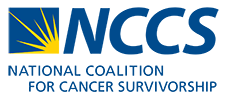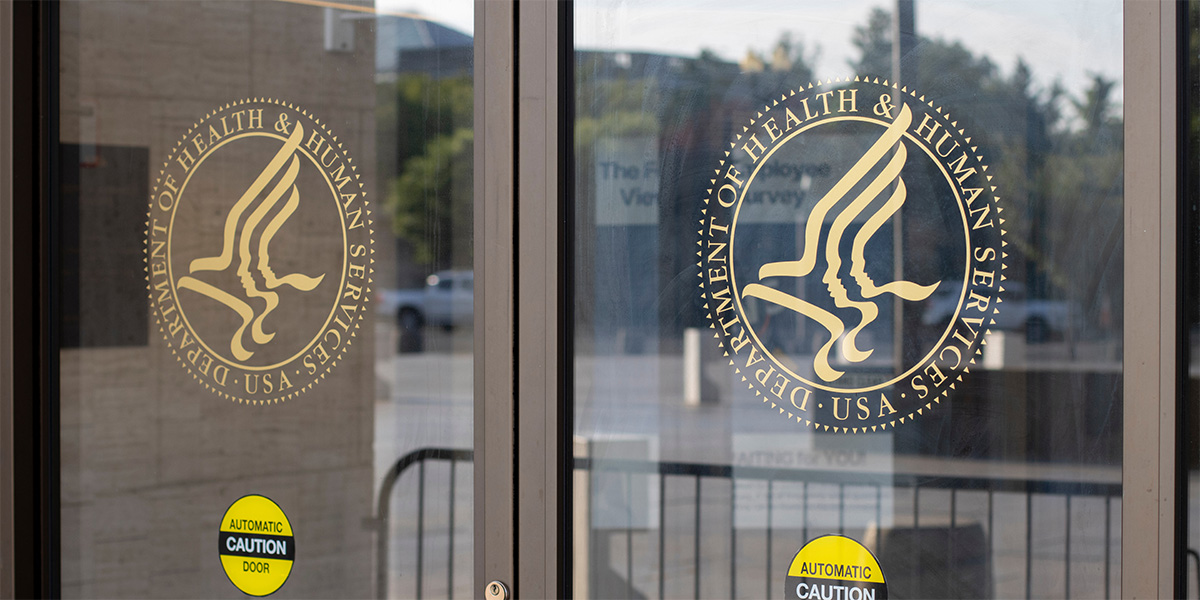NCCS Letter to HHS: Proposed Regulatory Review Rule Would Create Unnecessary Uncertainty for Patients
The National Coalition for Cancer Survivorship (NCCS) recently submitted comments urging the Department of Health and Human Services (HHS) to withdraw a recent proposed rule that would require the review of HHS rules that are more than 10 years old.
If implemented, this proposed rule would automatically eliminate regulations that are 10 years old or older if they are not reviewed. Reviews, if completed, would either be confirmed or completely withdrawn.
In a letter to HHS, NCCS suggests a more reasonable periodic review of rules and explains that this proposed rule would create uncertainty that would be felt by the people NCCS represents.
The rule would immediately create uncertainty regarding HHS regulations, and the subsequent effects of this uncertainty would be felt by the people we represent. For example, health plan issuers may exercise great caution in entering a health insurance marketplace whose rules are unclear or may change unexpectedly. Those administering Medicare and Medicare Advantage plans need clarity about coverage and payment rules, and a persistent threat of regulatory changes is at odds with that. Developers of new cancer therapies need predictability regarding the regulatory environment in which they operate, and the rule’s threat of regulatory uncertainty is at odds with that need. Cancer patients rely on a stable health insurance system, a vibrant research and development effort, and a strong Medicare program.
Read the entire comment letter below.
Download the Comment Letter [PDF] »

December 4, 2020
The Honorable Alex Azar
Department of Health and Human Services
200 Independence Avenue, SW
Washington, DC 20201
Submitted electronically at www.regulations.gov
Re: Securing Updated and Necessary Statutory Evaluations Timely (HHS-OS-2020-0012)
Dear Secretary Azar:
The National Coalition for Cancer Survivorship is a national organization representing survivors of all forms of cancer in efforts to ensure access to quality cancer care. NCCS pursues public policy efforts to advance quality cancer and supports cancer survivors in their cancer care journeys.
Cancer survivors rely on a strong and efficient Department of Health and Human Services (HHS) with the resources and personnel to administer the programs in its jurisdiction effectively. For example, the Food and Drug Administration is important to people with cancer because of its important role in the regulatory review of new cancer therapies. Many people with cancer rely on Medicare, Medicaid, or Affordable Cancer Act exchange plans for their health insurance coverage, and they rely on programs that are reliable and predictable in their eligibility and benefits. Those research foundations, pharmaceutical and biotechnology companies, and academic researchers that are engaged in cancer research and development also need a predictable research environment and regulatory process.
We are writing to express our opposition to the proposed rule, Securing Updated and Necessary Statutory Evaluations Timely, which would require the review of Department of Health and Human Services rules that have been in force for more than 10 years. The proposed rule, if finalized, would compel the review of 10-year-old or older regulations within two years after the effective date of the rule. If the reviews are not completed, regulations would no longer be effective. Reviews, if completed, might confirm the effect of regulations or result in the regulations being effectively withdrawn.
Rule Creates Uncertainty
The rule would immediately create uncertainty regarding HHS regulations, and the subsequent effects of this uncertainty would be felt by the people we represent. For example, health plan issuers may exercise great caution in entering a health insurance marketplace whose rules are unclear or may change unexpectedly. Those administering Medicare and Medicare Advantage plans need clarity about coverage and payment rules, and a persistent threat of regulatory changes is at odds with that. Developers of new cancer therapies need predictability regarding the regulatory environment in which they operate, and the rule’s threat of regulatory uncertainty is at odds with that need. Cancer patients rely on a stable health insurance system, a vibrant research and development effort, and a strong Medicare program.
The two-year period when regulations of ten years or older are being reviewed would be especially disruptive, but the negative effects of the requirement for ongoing reviews would persist.
Proposed Rule is Unnecessary for Periodic Review of Regulations
HHS has a mechanism for periodic review of significant regulations, a fact that is ignored in the preamble to the proposed rule that attempts to justify the across-the-board review of regulations. In 2011, HHS issued a Final Retrospective Review Plan to implement Executive Order 13563.1 HHS has relied on this review plan to undertake regulatory reviews and to provide reports on those reviews.2
We recommend that the Department use the authority it already has to conduct regulatory reviews and abandon the proposed rule that would have the effect of creating regulatory uncertainty and forcing the withdrawal of regulations because reviews cannot be completed timely according to the requirements of the proposed rule.
Proposed Rule Would Redirect Resources from Critical HHS Activities
If the proposed rule is finalized, the Department would be required to undertake reviews of regulations ten years old or older. If HHS honors this requirement – and does not simply permit regulations to become null because reviews are not completed – the resource requirements for undertaking this task will be significant. These reviews, which we believe are unnecessary, would drain personnel and other resources from ongoing and urgent regulatory activities at the Department. We underscore again the necessity for predictability and efficiency in the regulatory activities of HHS; the proposed rule would put the Department on a path that will result in neglect of ongoing and critical regulatory efforts. Instead, HHS will be focused on review of longstanding regulations.
Conclusion
We urge the Department to withdraw the proposed rule. Instead, HHS should undertake period reviews of regulations, as it did between 2012 and 2016 consistent with the Final Retrospective Review Plan. We also note that the Department is attempting a speed 30-day comment period. This is an insufficient period of time for public consideration and comment on a proposal of such broad scope and potential adverse effects.
Finally, we note that the Department is seeking to make this major change in regulatory standards amid a raging pandemic. We do not support the substance of the proposed rule, as we have explained above, and we think that it is particularly unwise to advance this proposal during the pandemic. The Department has responded with flexibility during the pandemic, including to improve access to telehealth services. These regulatory efforts in response to the pandemic require regulatory resources. We urge HHS to use its regulatory resources to respond to the pressing needs of Americans during the pandemic and abandon its regulatory review plan.
Sincerely,

Shelley Fuld Nasso, MPP
Chief Executive Officer
References


